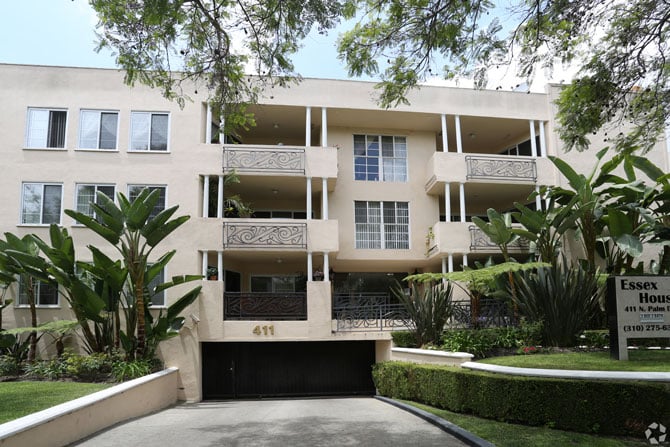
Landlords and renters in Beverly Hills have gone through mediation sessions to try to hammer out an agreement for rent control in the city, but the two sides remain far apart on the issue.
The talks came after landlords objected to an urgency rent-stabilization ordinance enacted by the City Council this winter amid a regionwide rapid run-up in rental rates. Among other things, the ordinance lowered the annual rent increases landlords could pass on to tenants to 3 percent from 10 percent.
Asking rents for apartment units in Los Angeles County rose 5 percent to a record $1,829 a month during the second quarter, according to New York commercial real estate research firm Reis Inc.
The Beverly Hills ordinance limits rent increases to 3 percent a year for almost all rental units in the city, except in cases where landlords can prove financial hardship. It also requires tenant relocation payouts of up to $12,400 and that apartment landlords register their units with the city, listing the occupants’ names, ages and rental rates.
The city agreed to bring in a private mediator to hear both landlord and tenant concerns about the ordinance and try to reach agreement on allowable rent increases, and tenant eviction procedures and relocation fees. Three sessions have been held to date, and while participants on both sides say some agreements have been reached on the margins, they haven’t reached consensus yet.
“This ordinance represents a 70 percent haircut in revenue for landlords,” said James Killian, principal with Coastline Capital Partners, a multifamily property owner in Beverly Hills. “It is a draconian measure that won’t allow multifamily property owners to recoup their investments.”
Killian, one of the participants in the mediation talks, said landlords want to see the rent increase cap raised to at least 7 percent a year and the removal of relocation fees for “no just cause” evictions of individual tenants. Such evictions do not require legal proceedings.
Tenants, meanwhile, want to keep the cap on rent increases as close to 3 percent as possible and want “no just cause” evictions eliminated altogether.
“The city never policed the rental market in the city at all, and we’ve had horror stories of tenants not being able to afford the rent increases or getting evicted so that unscrupulous landlords can then reset the rents to market rate,” said Mark Elliot, a renter who helped found the Beverly Hills Rental Alliance earlier this year.
In coming weeks, the mediator is scheduled to issue a set of recommendations on amendments to the ordinance to present to the council. Since most of the main issues are not likely to be agreed to, the mediator can pick a midpoint between the two sides and make that part of the recommendations.
But Killian said landlords might sue the city if the council does not go far enough in revising the ordinance.
Development Fee Hikes
The Los Angeles City Council has approved the first major hikes in development fees in six years.
While development fees have remained unchanged for six years, staffing costs have gone up as the volume of development applications has risen, according to a Planning Department report.
The agency spends nearly $30 million a year to process development and zone change applications, but only takes in about $22 million annually in fees for those services, leaving a $7.7 million gap, the report says.
The department proposed hefty hikes in a range of development and entitlement fees, which the council approved 12-0 on Aug. 25.
Most notably, the fee for a zone change that involves new construction will jump nearly four-fold to $20,229, while an application for a height district change would nearly double to $19,270.
Among the other big increases: The fee for a permit to demolish a historic structure will almost double to $8,380, and an entirely new $9,200 fee will be established for an evaluation of demolition or relocation without a permit already on hand.
A few fees will drop, with one of the largest declines being for an alcohol service permit for small restaurants (under 50 seats) to $3,787 from $6,040.
But developers and business owners can take small consolation in that appeal fees are also likely to go up, meaning opponents to their projects will likely have to shell out more in their efforts to stop or slow projects.
In a proposed policy change that is being reviewed separately, the basic fee for an appeal filed by a party other than the applicant could triple to $271 from $89. Other options would send that fee soaring as high as $13,538, which the department says is the cost to process an appeal (see related Commentary on linkage fee, page 69).
Staff reporter Howard Fine can be reached at [email protected] or (323) 549-5225, ext. 227.
